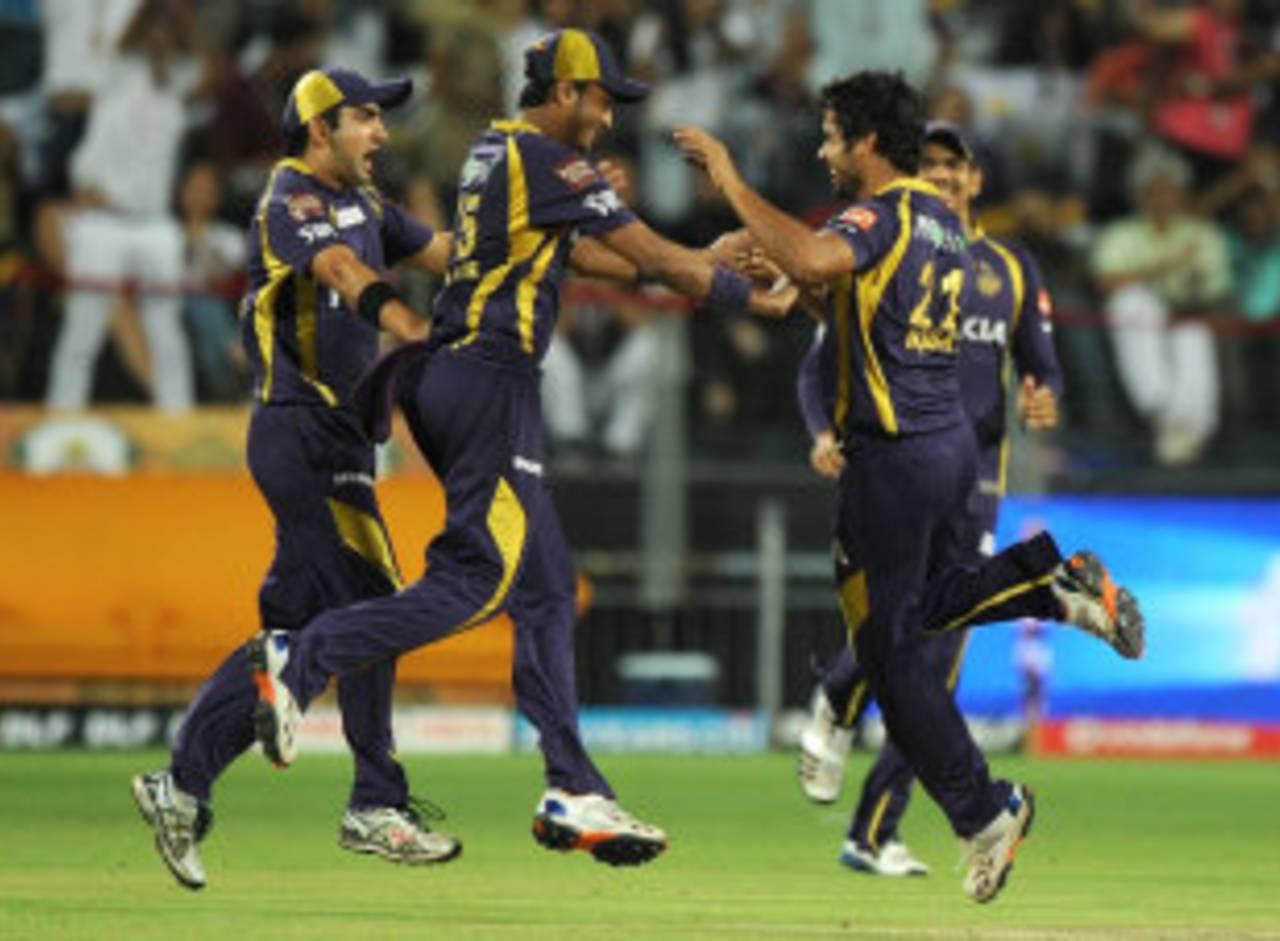In which we critique the format
League phase, playoffs, eliminators – it’s all such a dreadful headache
Andrew Hughes
Feb 25, 2013, 11:30 PM

KKR: used to be blue, now they’re purple • AFP
The daily life of the modern sports administrator is full of problems. For example, when completing your expenses form is it acceptable to claim for a round of cocktails on a first-class flight to a meeting in Kuala Lumpur to discuss paper-clip procurement procedures – cocktails you didn’t drink because your secretary didn’t buy your flight tickets, because the meeting was cancelled a week last Wednesday?
And if your boss tells you to come up with a schedule for a new cricket competition, what should you do? At first glance, it seems easy. If the thing is going to last more than a month, just make it a league. Everyone plays everyone else, the best team finishes top. It’s morally upstanding, neat and wholesome. What’s the problem?
Well, leagues, like Test cricket and empires, are a little 19th century. They’re fine for working out which team is the best, but as an administrator you couldn’t give two Haroon Lorgats which team is the best. Your job is to craft a compelling competition with a pulse-quickening climax. And sometimes, leagues don’t come down to the last ball of the last over of the last game. Sometimes they fizzle out with a fortnight to go and then your lovingly constructed schedule becomes a wasteland of low ratings and zombie fixtures.
Playoffs are the obvious solution. They look ugly when you stick them on the end of your tournament, like a fibreglass statue of Jesus on top of St Paul’s Cathedral, but they give you a lovely day out at which the trophy, the president’s wife, the big cake and the fireworks can all be in the same place at the same time.
That’s not the end of it, though, because having decided on playoffs, you’ve got to decide what kind of playoffs. If you opt for the classic two-semi-finals-and-a-final solution, you might have the unedifying spectacle of some Johnny-come-lately franchise wandering into fourth place by mistake and then gatecrashing the final, as though the previous 187 league games counted for nothing. And it also leaves the question of who finished third hanging in the air, inviting the horror that is the third-place playoff.
So hats off to the IPL administrators for their deviously cunning knockout structure, in which the third- and fourth-placed teams have to toil like Victorian workhouse children for the outside chance of getting to the final, whereas first and second can saunter along like carefree amateurs, qualifying at their own leisure.
As an added bonus, this format allows for the creation of concepts such as The Eliminator, a game of death in which the losers go home, which I suppose is more or less what happens in a semi-final but The Eliminator sounds so much sexier than The Second Semi-Final, particularly if you say it in a Hollywood film-trailer voice and emphasise the last syllable.
Either side of The Eliminator we have The Qualifiers, although since the losing side in the second Qualifier are going home, shouldn’t it also be an Eliminator? Perhaps “Eliminator 2: Last Chance Saloon on the Road To Hell” or something suitably dramatic.
Qualifier 1, on the other hand, is a more genteel affair, the perfect balance of tension and detachment, a compromise between the traditional gentlemanly ethos of cricket and the modern desire to win at all costs. Qualifier 1 is a game in which if you win, you get a reward, but if you lose, it doesn’t really matter because you get another chance.
So how did it go today? Well Delhi lost, really quite badly. But it doesn’t matter because they get another chance. And their victorious opponents? A vaguely purple team who now only need to keep it together for two more innings to lift the trophy, a team whose name we are absolutely not going to mention in case we jinx them.
Andrew Hughes is a writer currently based in England